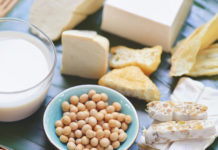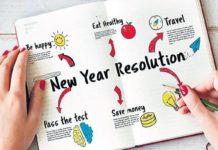As a woman, you need to know what diet is best for you and when, whether you’re a student taking online classes or a corporate executive working from home these days; a stay-at-home mom who never gets a break; or none of the above. Despite the fact that the future seems bright, with the Covid-19 on its approach to becoming endemic, we must continue to take precautions and focus on building a strong immune system over time, not only to resist the coronavirus’s ongoing expansion, but also to enjoy good health throughout our lives. Our food habits are the most major contributor to the decline of our bodies’ health, and our bodies’ health will worsen if our eating habits are not corrected. ALSO READ : menstrual cycle myths
Healthy health starts with good food; a balanced diet satisfies our individual and physical demands; and a nutritious diet functions as a medication to enhance vitality; nevertheless, because no one diet is perfect for everyone, it is crucial for women to maximize nourishment as they age. As a woman, you need to know what diet is appropriate for you and when from an expert, if you’re a students who take classes online or a corporate executive operating from house nowadays days; a stay-at-home mom who never sleeps; or none of the above. ALSO READ : BOOST YOUR IMMUNITY WITH THESE SUPERFOODS
“Beginning when you’re a teenager, what you eat will determine who you are in the years to come, because nutritional demands are higher.”
Fish, avocados, almonds, and olive oil are high in good fats, which are crucial for staying fit. Low haemoglobin is common at this time, therefore consume meals strong in iron and protein while avoiding junk food heavy in refined sugar, saturated and trans-fat.” “If the pandemic continues to restrict how much sunshine vitamin you can absorb, add vitamin D to your diet to help with calcium absorption,” he said, adding, “If you’re pregnant or nursing, lean proteins, iron, and vitamin C (to absorb the iron) are all must-haves for you.” If you’re planning a pregnancy, you’ll need vitamin D, B12, iron, calcium, and folic acid supplements. This age group of women should eat a well-balanced diet that includes meat, dairy, and fish.
During menopause, women should avoid foods high in sodium, preservatives, and saturated fats, and those in their 40s and 50s should consume extra calcium and iron, as well as anti – oxidant and anti foods like berries, chocolate, and green tea, and high-fiber foods like whole grains, vegetables, and fruits.
In addition to vitamins D and C, vitamin B12, which is essential for brain function but is often deficient in vegetarians, should be supplemented with vitamin B12 fortified diet if not obtained naturally. A low glycaemic, low fat, high protein diet is advised since metabolic disorders and vitamin deficiency are typical in this age group. Woman in their 40s and 50s should avoid foods heavy in salt, preservatives, and saturated fats throughout menopause. Vitamin B12, which is required for brain function but is frequently inadequate in vegetarians, should be supplemented with a vitamin B12 fortified diet if it is not available naturally. Because metabolic problems and vitamin insufficiency are common in this age range, a low glycaemic, low fat, high protein diet is recommended for woman. To avoid foods high in salt, preservatives, and saturated fats, women in their 40s and 50s should consume extra calcium and iron, as well as antioxidant-rich foods like berries, chocolate, and green tea, and high-fiber meals like whole grains, vegetables, and fruits, throughout menopause. Vitamin B12, which is necessary for brain function but is often deficient in vegetarians, should be supplemented with a vitamin B12 fortified diet if it is not already present.




